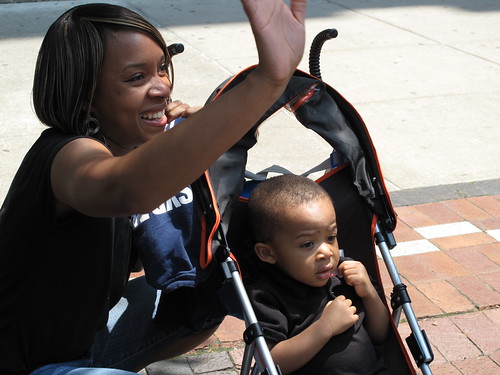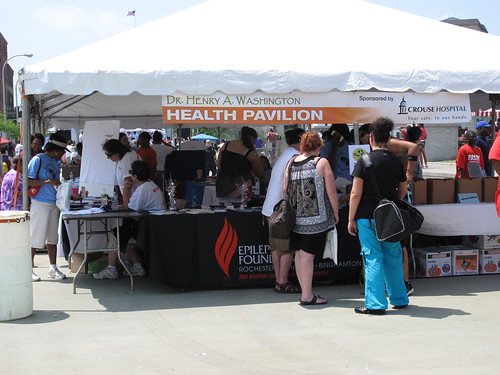A parade, music, food & healthcare highlight the 2011 Juneteenth Celebration
“In order to move forward into the present, we have to know our past,” said organizer Barbara Mattison. The 2011 Juneteenth celebration almost did not happen because of financial difficulties, but the community and sponsors pulled together to make this year’s Juneteenth a reality.
A parade stretching from Dr. King Elementary School to Clinton Square showcased the talents of Syracuse’s youth through organizations like Pretty Girls Rock, Hillside and Say Yes to Education among many others.

The sun glistened off of the fire trucks as Syracuse’s Black Firefighters marched by. LaToya Griffin who stood with her 2-year-old son Aiden looked on with pride as she watched her husband Byron Griffin representing Station 9 march in the parade.
LaToya Griffin said, “It is important for the youth to learn the meaning of Juneteenth and to gather and have unity.” Her husband echoed her sentiments, adding “ young minority males and females need to see and know that people that look like them are firefighters and they too can be whatever they want to be.”
The smell of food and the sounds of music vibrated through the air as the parade came to its conclusion and people made their way over to taste the foods they were smelling and dance and sing to the music they were hearing.
In the middle of Clinton Square stood the Health Pavilion. People lined up to learn more about diabetes and high blood pressure. Maria Lumbrazo and Sharon Wiggins representing Upstate Universities Stroke Program said their main focus at Juneteenth was to spread the word about the symptoms of a stroke.

“African Americans are three times more likely to have a stroke, because of high blood pressure and diabetes,” Lumbrazo conveyed.
Wilma Davis, a volunteer and devoted supporter of Juneteenth, feels that the Health Pavilion is a great source of free information for people young and old. “ The information on healthcare, family and protection is priceless,” said Davis.
Juneteenth represents the Emancipation of Slaves in 1865. As we continue to celebrate this day, the emancipation continues as African Americans are taught about their past and given knowledge to have a brighter, happier and healthier future.
— By Katherine Hills, Community Correspondent for The Stand
 The Stand
The Stand

